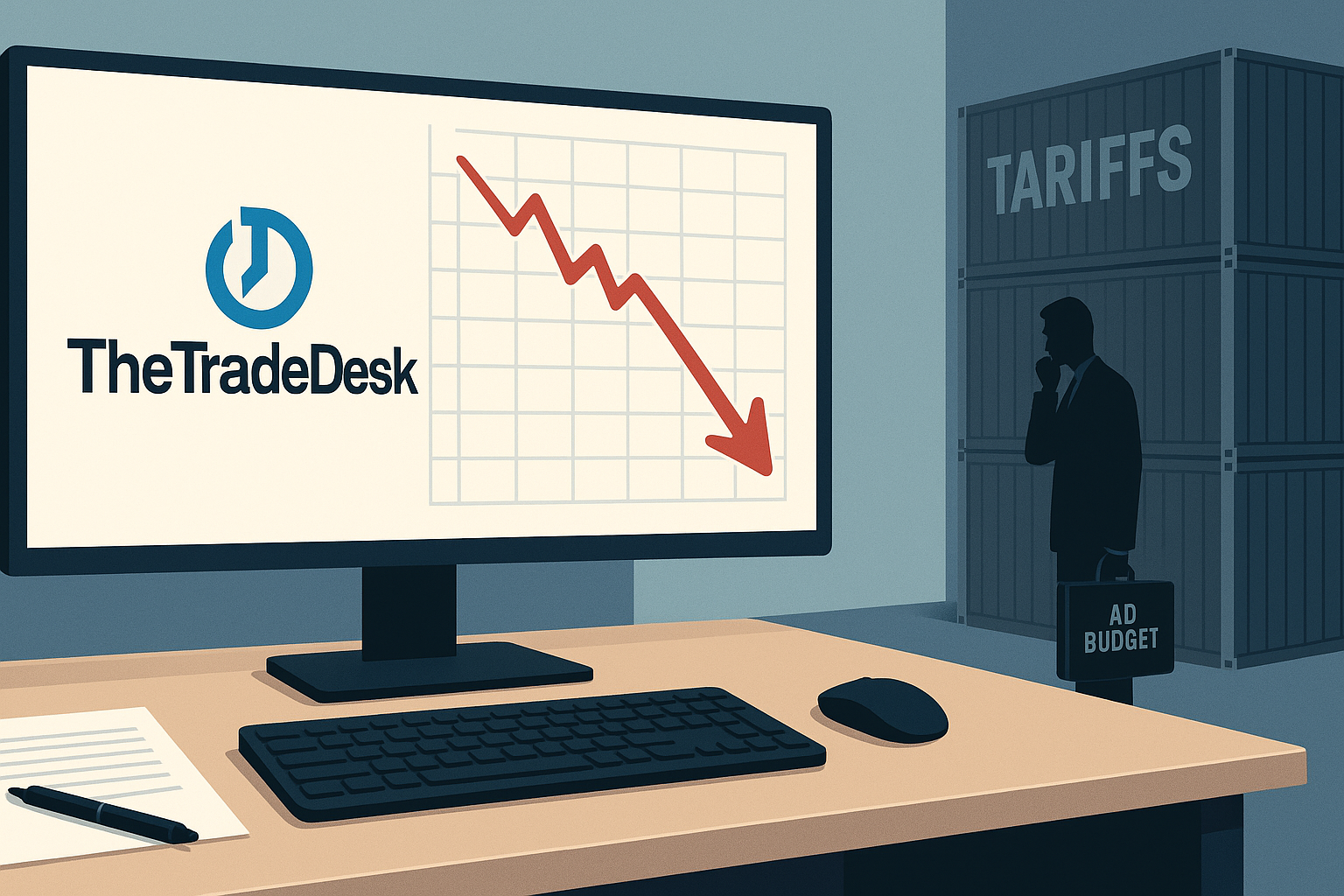Trade Desk shares cratered 32% in premarket trading Wednesday after CEO Jeff Green dropped what can only be described as a bombshell warning about tariffs scaring the bejeezus out of the company's big-name advertisers.
Look, I've covered the adtech space since 2018, and I've rarely seen a stock reaction this violent to what amounts to macroeconomic commentary. Trade Desk—previously the golden child of digital advertising—suddenly finds itself in Wall Street's doghouse faster than you can say "budget reallocation."
The company operates what's called a demand-side platform, which is fancy industry-speak for "we help advertisers buy digital ads without losing their minds in the process." Their entire business model depends on major brands feeling confident enough to keep marketing dollars flowing.
And therein lies the rub.
Green's warning suggests that heavyweight advertisers are looking at potential tariff impacts and thinking, "Maybe we should hold off on that multi-million dollar campaign." Marketing budgets, as anyone who's worked in corporate America knows, are always first on the chopping block when storm clouds gather. (I've witnessed this phenomenon firsthand during three separate economic downturns—it's as predictable as executives protecting their bonuses.)
What's particularly fascinating about this plunge is the timing. Trade Desk had been on a tear in 2024, with shares up roughly 30% before today's nosedive. Investors had been all-in on the company's connected TV growth narrative and its positioning in the rapidly evolving digital ad ecosystem.
That narrative? Effectively shattered—at least temporarily.
"We're seeing preliminary signs that some of our largest advertisers are becoming increasingly cautious about macroeconomic factors, particularly the potential impact of tariffs," Green reportedly told investors.
Not exactly confidence-inspiring, is it?
The company had long positioned itself as somewhat insulated from traditional advertising cycles through its technological edge and focus on programmatic advertising. Their pitch was essentially: "We're different from those old-school ad platforms." Today's market reaction suggests investors aren't buying that distinction anymore.
I spoke with three adtech analysts this morning who all expressed various levels of shock at the magnitude of the selloff.
"This seems overdone," one told me, requesting anonymity because they weren't authorized to speak publicly. "But when a high-multiple stock hints at slowing growth, the algorithms don't exactly respond with nuance."
The tariff angle adds an interesting wrinkle to this story. We're witnessing the downstream ripple effects of trade policy working through the economy in ways that aren't immediately obvious to casual observers. It's economics in three dimensions—first the tariffs hit importers, then those companies adjust spending, then companies like Trade Desk feel the pain from those adjustments.
Other adtech players like Magnite and PubMatic are also taking hits today... though nowhere near as severe.
The million-dollar question—and what will ultimately determine whether today's drop is an overreaction or just the beginning—is whether Green is seeing a momentary hesitation in ad budgets or the first tremors of a more serious advertising recession.
For what it's worth, advertising has always operated on confidence and perception. Trade Desk is learning that managing Wall Street's perceptions can be even trickier than helping brands manage consumer perceptions.
The road back? It'll be bumpy—and likely paved with at least two quarters of proving this tariff talk was overblown.




